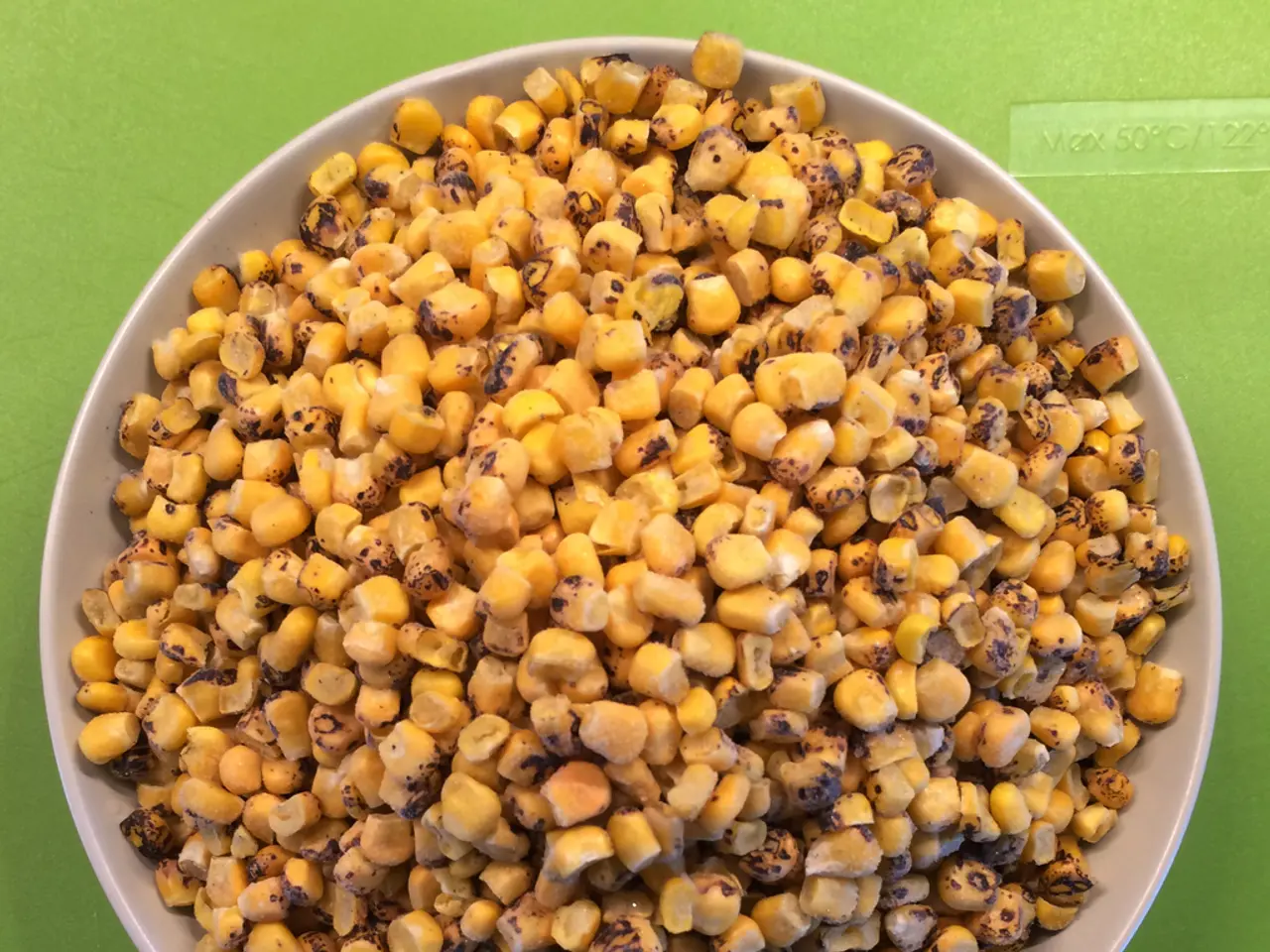Guidance on Traditional Haudenosaunee Horticulture and Revival of Seed Guardians
In the heart of North America, the Haudenosaunee Seedkeepers play a vital role in preserving genetic diversity, traditional knowledge, and promoting sustainable farming. These Indigenous stewards safeguard the seeds of crops such as corn, beans, and squash, known as the "Three Sisters," ensuring their genetic integrity and adaptation over generations.
As living libraries of genetic diversity, the Haudenosaunee Seedkeepers revive lost crop varieties, bringing back forgotten flavors and pieces of history. Their work not only serves to preserve the biodiversity of these crops but also their resilience in the face of environmental changes.
The Haudenosaunee Confederacy, also known as the Iroquois, is a union of six nations: Mohawk, Oneida, Onondaga, Cayuga, Seneca, and Tuscarora. Within this society, women hold central roles as Seedkeepers and gardeners, being the stewards of agricultural knowledge and cultural continuity.
The history of the Haudenosaunee is marked by resilience, with Seedkeepers and gardeners persisting through adversity, including colonization and forced removal. Despite these challenges, they have continued to uphold their sacred responsibility of tending the earth, viewing seeds as relatives gifted by the Creator.
Heirloom seeds, maintained by the Haudenosaunee Seedkeepers, often possess unique qualities such as drought tolerance, pest resistance, or superior nutrition. These seeds serve as keys to food sovereignty, environmental health, and cultural survival for Indigenous communities worldwide.
In recent years, modern scientific research has increasingly validated the sophisticated knowledge embedded in Haudenosaunee gardening traditions. As scientists seek sustainable solutions to global food challenges, they are turning to Indigenous wisdom, sparking new collaborations that blend tradition and innovation.
The example of the Haudenosaunee Seedkeepers serves as a model for resilience and renewal in the face of global food challenges. Schools and community centers host workshops where children learn about the Three Sisters and other Haudenosaunee gardening practices. Community seed swaps, heritage gardens, and food festivals now celebrate these treasures, reconnecting people to their shared heritage.
For many Haudenosaunee Seedkeepers, seedkeeping is a spiritual and ethical commitment. They often hold ceremonies to bless and honor their seeds, viewing gardening as a ceremony and a form of storytelling. Each season is marked by rituals and songs, with the wisdom of Haudenosaunee gardening inspiring future generations, reaching new audiences such as young people, urban gardeners, and scientists.
At the heart of Haudenosaunee gardening wisdom lies the legend of the Three Sisters: corn, beans, and squash, grown together in a harmonious trio. This ancient practice not only promotes sustainable farming techniques that work in harmony with natural cycles and ecosystems but also supports biodiversity, soil health, and water conservation.
In conclusion, the Haudenosaunee Seedkeepers' significance lies in their multidimensional role to protect crop genetic diversity, uphold traditional ecological knowledge, and model sustainable agriculture that sustains both their people and the natural world. Their legacy serves as a testament to the power of Indigenous wisdom and resilience in the face of adversity, offering valuable lessons for us all.
- The Haudenosaunee Seedkeepers' role in preserving genetic diversity extends not just to crops, but also to the preservation of traditional knowledge and sustainable farming practices.
- In promoting sustainable farming, the Haudenosaunee Seedkeepers foster biodiversity, not only in their crops but also in the ecosystems they work within.
- This Indigenous group's work on genetic diversity and traditional knowledge is a crucial contribution to ongoing research on evolution and adaptation in the face of climate change.
- By reviving lost crop varieties, the Haudenosaunee Seedkeepers contribute to the understanding of food-and-drink culture and history.
- In the realm of education-and-self-development and personal-growth, the Haudenosaunee Seedkeepers offer valuable lessons in sustainability, resilience, and cultural preservation.
- For travelers seeking cultural experiences, educational tours focused on the Haudenosaunee Seedkeepers can provide unique insights into their practices, lifestyle, and heritage.
- By celebrating Haudenosaunee gardening practices through home-and-garden activities like community seed swaps and heritage gardens, we can all learn and contribute to the sustainability movement.
- The Haudenosaunee Seedkeepers' legacy invites us to embrace a renewed perspective on our relationship with the environment, fostering a holistic approach to conservation, biodiversity, and our overall lifestyle.




